I created the perfect productivity system
How to do more in 90 days than most people do in their entire lives.
Most people suck at time-management.
They think they always need more time. It’s not more time you need. You just need use the existing time you have more efficiently. Having less time actually makes things easier.
I know that sounds counterintuitive, but hear me out.
Let’s say you’re given 4 weeks to do something.
1st week. You’re like whatever, there’s plenty of time.
2nd week. You have a moment of inspiration and you open Microsoft Word. A million thoughts swirl in your head. What do I write, where do I start? So many things to say. Let’s just get something down on paper.
…
…
…
And so you write your name.
At this point, your brain is completely fried and so, you take a break... a week long break.
So, it’s week 3 now.
You tell yourself, ok no more fooling around, but then, uh oh, your hamster’s brother’s cousin’s old roommate suddenly contracts the bubonic plague and of course you need time to mourn and just like that, you’re in the final week.
First 6 days, you’re pushing like a machine, writing 2 whole pages. How long is this supposed to be again… uh oh ten freakin pages? Cold sweat drips down your back.
You feverishly bang out 8 pages in a single all-nighter, submitting it just two minutes before the deadline.
Funny thing is… if you only had 1 week to do this, you would’ve finished this whole thing in week 1 and had three entire weeks to yourself guilt free.
That’s why step 1 of this system is a mindset shift.
We think of deadlines as the bad guy… this annoying thing that breeds guilt and negativity. Here’s the thing though. Deadlines are not bad. They are on your team. They work for you. They are the OG, oldest accountability partner you could ever have. They keep you on track and ensure the work gets done. Used properly, deadlines guarantee progress faster than you ever thought possible. It supercharges your work routine by promoting motivation and urgency. I especially love a good deadline because it means salvation is near. The period right after a deadline is truly the most relaxed time you could ever enjoy.
Step 2. Use the Silent Boss Technique.
We’ve been trained all our lives to be passive. All deadlines are given to us. Someone else does the planning and the strategizing. Whether that’s your parents, your teacher or your boss... it’s always an external force that sets the timeline. They’re the ones that tell you when things should happen and you’re simply expected to follow. It’s no wonder when it comes to working on something for yourself, you have no idea how to do it. You aren’t used to taking initiative and making things happen when there’s no structure. That’s why people suck at it and why 90% of dreams fail.
But with that said, if you’re used to that dynamic, then make it work for you.
This is the Silent Boss technique.
At the end of each day, there’s a secret silent boss waiting for you to submit your work. He doesn’t care about stupid busy work and useless meetings. He wants real shit to get done. Today, I owe this dude 100 pushups, a finished youtube script and a few minutes of Death Journaling. It’s always about action and real results. Shift your mindset and treat your Silent Boss with the same urgency and respect you do for everything else.
Speaking of which…
Step three. Deadlines should always be 7 days long.
Seven days is the perfect combination of urgency and control. When a deadline is too far ahead, you have no urgency, whereas when you know it’s coming in just a few days, almost every day counts. How is today going to move the needle for me is a question you should be asking every single day.
Seven days is also the perfect unit of time for planning and goal alignment because it’s harder to control what Future You will be doing in 6-months but much easier to control what Future you will be doing in just a few days.
There’s that famous quote:
“We underestimate what can happen in a few months but overestimate what we can do in a single day.”
I forgot who said it… maybe it was Bill Gates, Tony Robbins, Peter Drucker or perhaps Stacy’s mom?
Either way…
Yah see, inspirational quotes are a dime a dozen.
It doesn’t actually matter who said it, what matters is what you do with it. For most people, great quotes live purely on paper.
It may even be a poster in your room.
You look at from time to time and say, haha yah, good stuff but then you just go back to doing whatever you were doing. Which was probably not a lot.
But that’s not going to be you any longer. Because you are about to do…
Step 4. Mapping out the entire 90-day journey, one day at a time.
This is the most crucial step right here.
Whatever goal you want to accomplish, write it out at the top of the page. Start there and work backwards.
This is the concept of reverse-goal setting.
To make this goal stand out from the other goals you may have, we’ll call this goal
a supergoal.
This supergoal is your ULTIMATE VISION. The next 3-months will be devoted to this goal and this goal only.
You may be tempted to just brain dump and pick a bunch of random tasks that seem to push you towards your supergoal and to get started as soon as possible.
I would caution you against that - this is not just some glorified to-do list. There’s strategic actions that really move the needle and then there’s comfortable actions that simply feel good. You don’t want to just feel productive. You actually want to be productive. Focus on what you MUST do, not what you WANT to do. Acknowledge your feelings but realize they don’t always steer you in the right direction.
In this new operating system you are about to build,
efficiency and effectiveness
are the only two things that matter. Productivity for productivity’s sake is not going to cut it. That’s why you must ask yourself, if this supergoal is going to come true, what are the 3 non-negotiable components of this that must get done?
For example, if I want to build an amazing online business, I need to have
one. A high-quality product
two. An efficient way to get the word out to interested customers and
three. A system that makes this all run like a smooth buttery machine, below cost and at scale.
If I want to achieve this in 90-days, I need to be laser focused on what each week’s milestone is going to look like.
There’s absolutely no room for fluff at all in this model.
These 3 non-negotiable components are the 3-acts of a story you tell your future grandkids. If each act is a month in length, that means you have a total of 4-milestones to hit every month, one per week.
How long was the perfect deadline? Ah yes… one week long. Your supergoal is now broken up into 12 milestones, designed to hold you accountable week after week. With your silent boss expecting something to happen at the end of each week, each day now has a sense of real urgency. Because of that urgency, you have to make each day count.
But don’t worry, this system isn’t supposed to drive you crazy. Each day is actually really simple. It all just comes down to doing 3 things.
Your three most important things.
This is the inverted pyramid method we’ve talked about before.
This system intentionally keeps the day to day as flexible as possible because we all have a bunch of other life stuff to do. But that’s also why you can’t just wing each day. It’s your job to explicitly figure out what the 3-highest yield, most important steps are for each day.
Because 7 days means you only have 21-steps to get there and since my own personal rule is you should always reserve the last day for rest, recovery and reflection, you only really have 18 steps per week. You gotta make them count.
Don’t skip the built-in recovery day.
Seriously. They’re built into each week to ensure you don’t burnout or get stuck following a plan that doesn’t make sense anymore. Dedicated reflection keeps you nimble and allows you to adjust next weeks’ steps based on the shit that went down this week.
It also lets you reflect on each action’s impact.
All actions should have an impact factor of 80% or more when it comes to moving the needle. Activities that are in the bottom quartile of impact, 25% or lower, should not waste your time.
You may not have this sense at first, and that’s okay. But as you push forward, you’ll begin to build that sense because you’ll start to see what worked and what didn’t. That’s the feedback loop you need to pay serious attention too. If you don’t do that, you’ll be destined to repeat the same low yield crap week after week.
That’s why the 7th day of reflection for every week is a crucial step you cannot afford to ignore. But when you do it right and power through a bunch of steps that actually move the needle, you’ll start to pick up real momentum. You’ll start to gain confidence. I can do this. Remember this feeling. If you consistently chase impact, you’ll soon find this feeling repeating over and over again. That snowballing momentum is going to be insanely powerful during this 90-day sprint.
Seriously sit down and map this all out to increase the likelihood that this kind of momentum occurs.
It’s just two steps really.
Starting with the end-goal in mind and reverse engineering your way there gets you 60% of the way.
Reflecting every week to fine-tune your plan, chasing impact over and over again, gets you the other 40%.
These two steps are probably the two single highest yield activities you could do for the entire year. This is the heart and soul of how you ensure you do more in 3-months than most people do in their entire lives. This is how you get ahead. The better your plan is, the more likely you are to crush it.
By the way, to make things really easy for you, I created an entire notion template that lays out all these steps and more. It walks you through the entire productivity system from beginning to end.
Now that you know how this 90-day framework works, you’ve finished with the easy part. Hard part is the implementation and sticking with it. Luckily, I have a step-by-step framework for that too.
Step 1 - Get obsessed.
You can either half-ass many things at once or full-ass the one thing that matters. That’s why before you begin, you must create the ultimate vision of what you want to accomplish at the end of 90 days. This vision has to be singularly focused, something you want more than life itself, a thing you aren’t willing to leave this planet not having achieved.
In these 90 days, everything else becomes secondary. Whatever else you must do, do the bare minimum - just enough to keep the lights on so you can pursue your 90-day vision. That may sound extreme but it really isn’t when you realize in this productivity system, not only do you have one day a week built in for rest and life maintenance, you give yourself an entire month to rest and recover and plan for the next 90-day sprint.
This is the 31-31-31 method.
An entire year is comprised of just three 90-day deep work sprints intermixed with a month of rest and planning in between.
3-months of deep work (Jan, Feb, March) followed by 1-month of rest and planning (April)
3-months of deep work (May, June, July) followed by 1-month of rest and planning (August)
3-months of deep work (Sept, Oct, Nov) followed by 1-month of rest and planning (Dec)
It this schedule makes you uncomfortable, you may falling into what I call, the Balance Trap.
For a lot of people, being productive is a day-to-day thing. They’ll watch some amazing motivational video, get all fired up and make a plan for themselves.
“I gotta wake up at 5am, get that perfect morning routine in, balance all my chakras, eat my green goop smoothy, do 10 pomodoro sessions, work out, gratitude journal, hike a mountain and adopt a hamster.”
And if he misses any of those things, the whole day suddenly feels like a wash. Why even bother now? Might as well do nothing and so, you fall into a rut and sit around until the next wave of inspiration hits.
Trying to balance every day and cram everything in there means you’re realistically spending almost a quarter of your energy just micromanaging. This is all brain power that would’ve been better spent actually doing the task at hand. That’s why a much more effective style of balance is about incorporating periods of intense focus with periods of intense rest.
Furthermore, trying to cram a lot into one day means you have to multitask. Multitasking feels productive but it actually is incredibly inefficient.
One. When you switch your attention, it actually takes 17-minutes to refocus back.
Two. It’s stressful and makes you more prone to errors.
Three. It prevents your brain from engaging in true deep work.
All that’s to say, if you want to get shit done and done efficiently, the lowest hanging fruit is to FOCUS. Not just for a single day, nor a single week… but for months at a time.
This is the concept of seasonality
and is the secret to getting ahead. Even Bill Gates does this. Twice a year, he does what he calls a “Think Week,” hiding himself in a secret cabin in the woods. No one is allowed to disturb him - no friends, no family. Just him, a bunch of books, papers and his thoughts. Because when you engage in this kind of intense focus, you unlock something called diffuse mode thinking, a process that gives you an insane boost in creativity.
I know you’ve accidentally experienced this before. When you intensely focus on something, trying to solve some problem, when does the solution come to you usually? Not during the session itself right? It comes later when you’re in the shower or on the crapper right? That’s because when you push your conscious thoughts to stay focused on a problem in such an intense way, those neuronal patterns continue to echo in the background even when your conscious mind moves to something else. I call this phenomenon, a neuronal echo. If you’ve played a game like Tetris before, you may have experienced something similar. Play Tetris for too long and you’ll start to see falling colored blocks even when you close your eyes, a weird thing called the Tetris Effect.
Realize this isn’t just for Tetris right? Focus on anything long or deeply enough and the same phenomenon happens.
These neuronal echos continue working in the background at a subconscious level, connecting dots for you until that eureka lightbulb moment comes. This is literally what neuroplasticity feels like in real-time, aka the brain’s natural ability to reorganize itself through the formation of new neuronal connections.
That’s why the answer feels like it’s materializing out of thin air. Your brain was literally re-buidling itself, surfacing new connections from your subconscious you didn’t have before, the byproduct of hours of heavy brain analysis you didn’t even realize you were doing.
Maximum efficiency with no extra conscious effort.
This productivity system was built for this very purpose - to engage these subconscious processes, systematically guaranteeing lightbulb moments for you on a regular basis. If you’ve never experienced this before, you have no idea what you’re missing out on.
This is why those with singular-focus will always win.
It’s the only way to tap into the vast neural network of subconscious circuits you can’t directly access and yet most people let this power go to waste, squandering its potential by feeding it endless junk and meme videos. That’s why I’m a huge proponent of the 31-31-31 way of life. Deep focus isn’t just a catch-phrase, it’s about engaging literally the deepest parts your mind; it’s how you activate your entire brain and push every waking moment in service of your ultimate vision.
I think of thoughts as civilians living in my brain. Some thoughts are supporters of this vision while others are naysayers. Why are the naysayers here? What can I do to crush them? This isn’t a democracy. I’m the dictator of my brain and I rule it with an iron first. My agenda is the only agenda. Deep focus is what aligns all the thoughts in your mind, enlisting even the deepest networks of your brain in pursuit of your goal. That’s how you turn thoughts into real action, the front-line soldiers battling for you. The more thoughts you convert into actions, the more soldiers you have on the front line, and the more likely you are to turn the tide of war.
With this idea in mind, is it any wonder you get nowhere when you overwhelm your brain with a million unrelated problems, pushing to solve them all at once? Your brain is a supercomputer but it’s only functions as a supercomputer if you give it a single problem to work on. Think about your computer - open enough programs, tabs and applications; push it to do a million things at once and what happens? The whole damn thing freezes where it can’t even do the simplest of tasks. Problem is, most people live in a state like this as the default.
Step 2. Make all tasks specific, action-based and goal-oriented; not outcome-oriented.
If you want a successful youtube channel, you may be tempted to make the first week’s goal, “get 100 subscribers.” Unfortunately, you can’t control whether or not 100 people subscribe to your channel, but you can for sure control what you do, which is posting videos. Creating a goal to post a few videos is a much more tangible goal.
But try not to make your goals too quantity oriented either.
It’s not read 100 pages of a book, it’s understand the big picture of the book and get some real actionable take-aways you can apply immediately.
Don’t make it time-oriented either.
It’s not spend 2-hours studying because who knows how efficiently you study? Make it goal-oriented instead. Today, I want to understand the Krebs cycle and why this process is important for cellular metabolism. You want to incentivize efficiency right? Old you would’ve set aside 2-hours to get it done but if the new you can learn the Kreb cycle and get some main-takeaways in 30-minutes, that’s 1.5 hours of life returned back to you.
Point is this. Don’t get stuck in the minutiae measuring or tracking the effort of your labor. It should always be about the bigger picture and focusing on real results you can specifically influence.
Step 3. Let a few things fall through the tracks.
You won’t always hit all your goals and that’s okay. You can’t always do it all and that’s okay. Failure is part of growth. Expand your appetite to stomach the bitterness of dropping a few balls every now and then. If you are used to achieving at a high level, your ego often can’t handle underperforming and so, it ironically sabotages your efforts. It would rather you do nothing than risk blemishing your supposed perfect record. Oh I could’ve achieved my dreams; I couldn’t done it - but I didn’t really try. I didn’t have time. Whatever excuse your ego may give you, realize the truth. You’re freakin scared and that’s normal. Don’t paralyze yourself with perfection. If you’re hitting 100% of your tasks every single time, you know what that means? You’re not challenging yourself enough.
Step 4. Make it Challenging
Intentionally pick tasks that give you a challenge, that force you to grow… tasks living just outside your comfort zone. I call this a stretch task. If you don’t feel just a tad bit of pressure, you’re doing it wrong. Just don’t make it so hard, you get overwhelmed or discouraged.
Step 5. Understand what you’re sacrificing.
There’s going to be some costs to implementing this 90-day framework. You may be already used to a certain daily regimen for example - snack time at 3pm, nap time at 6pm, crack time at 9pm.
To make room for your 3 important tasks of the day, you may need to give up some of these things.
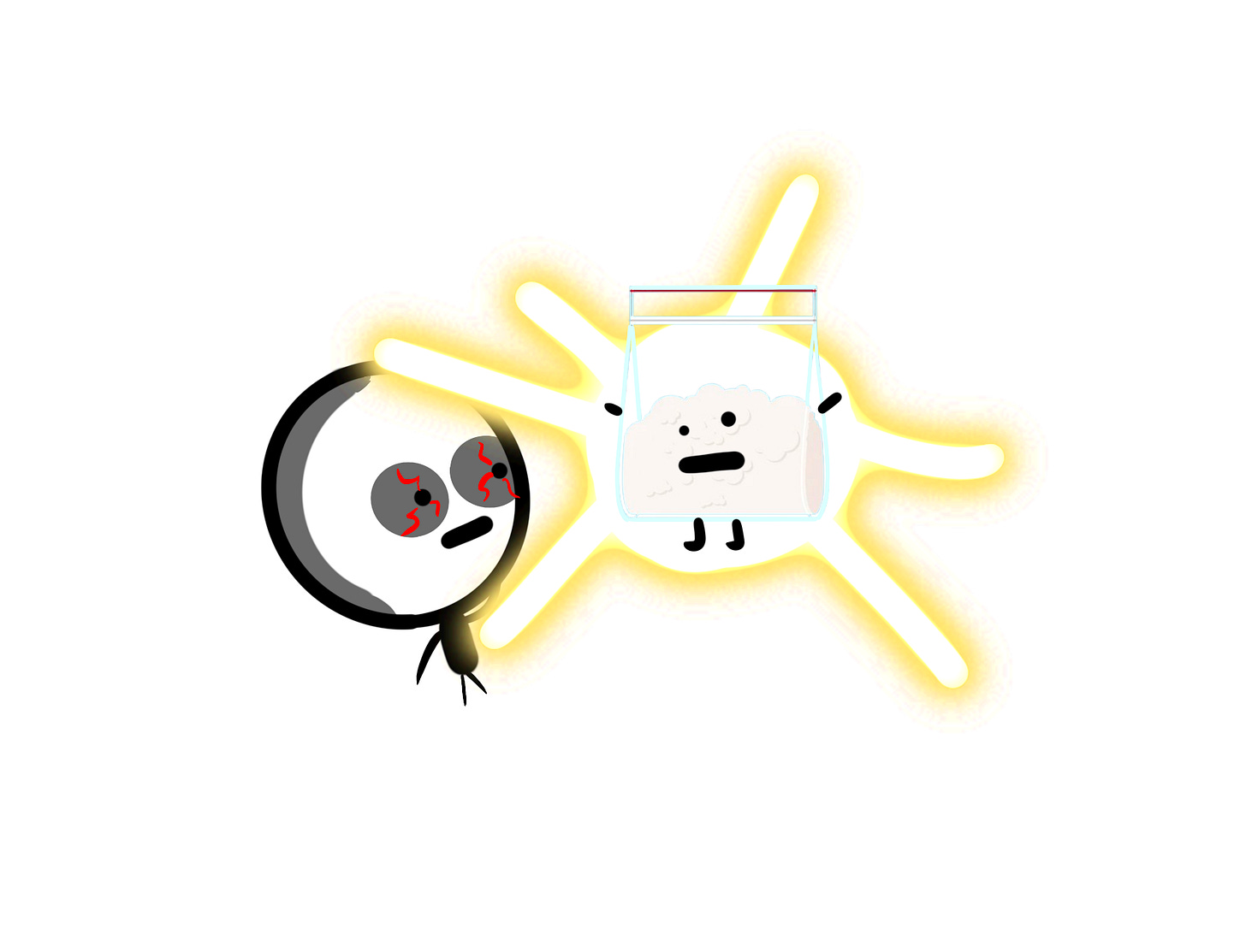
Make a list of things you’re willing to give up so when the time comes and you have to ask yourself, do I want to smoke crack today or do I want to chase my dreams and become my ultimate self?, you’ll know what the right answer is.
Step 6. Anticipate your problems.
We all know what we are good at and what we suck at. If there are certain tasks in your 90-day plan that you know will be challenging, make a mental note of it. Anticipate what those problems may be and actually write out a plan B so when you do hit that bump in the road, you won’t panic. You calmly tell yourself, no big deal. I knew this would happen. I planned for this contingency.
Step 7. Build an emergency kit.
This is what you reach for when things get really tough; when you feel down, emotionally overwhelmed, on the brink of quitting. This is your “Break glass in case of emergency Kit.” It’s an entire step-by-step protocol you go through depending on how much you are struggling. The worse you feel, the deeper into the kit you go.
First tool is the vision.
Make a “pinterest” type board of what your future ideal life looks like, a vision of what you want to remind you of what’s at stake. Anytime you feel like quitting, you go back to this and stare at it. Are you sure you want to give this up?
2nd tool is social pressure.
Surround yourself with people who have fought for it and made it. Best is to have these people in your life but second best is to have them in your mind. Who are these people? Write blurbs about all of them in your kit. What kind of crap did they have to go through to get to where they are today? How much time did they grind? How many times did they almost quit? Is your level of commitment at all close to what they’ve put in?
Trick is to actually normalize their behaviors and actions. If they could do, why not you? There’s nothing inherently more special about them. Think of them as your peers and imagine them talking you through it.
“We all had to go through this. We know what you are feeling. Don’t give into the pain. If we did, none of us would be standing where we are today. If you want to join us, this is something you must face.”
3rd Tool of this kit is Feel-Good Emotional Inspiration.
Make two playlists. One is an incredible pump-up music playlist that you only listen to as part of this kid. It’s designed to elevate your emotional state. The other is a playlist of all the videos and podcasts you’ve watched before that have inspired you.
Every time you listen to something inspirational that gives you a boost of motivation, throw it into this Emergency Kit playlist. Tell yourself, before you quit, you literally have to listen to all the videos in this playlist first. This is basically present you planning an intervention for your discouraged Future self except the people showing up to help you are the highest caliber people you can think of.
Fourth tool is a phone number.
This phone number should be from a trusted colleague, a friend… someone you arrange in advance who if you call, they drop everything and talk you down this ledge. You tell them in advance. If I call you and I say the secret code phrase, “the dingo ate my baby,” you remind me why I’m doing this.
You give them a list of talking points. You give them your ultimate vision of why this is important to you. You give them this honor of safeguarding your dream and when the time comes, even when you may have stopped fighting for it, someone else will fight for it for you.
And that’s okay. In our weakest moments, we all sometimes need a little bit of help to keep going. No shame in that.
Fifth tool is the secret envelope.
In your back pocket is a secret note you’ve written to yourself. The longer the time passes from when you wrote it, the more powerful this thing becomes. Make a physical copy of it and handwrite it. On the envelope is a single message:
“Only read in a state of emergency.”
This is an example of one letter I wrote to myself long ago:
“Dear Future Self,
If you’ve made it this far in the emergency kit, it must be bad. I had hoped it didn’t have to come to this point, but here we are. Life throws us shitty lemons and we still have to try our best squeeze out lemonade. Give it a day and see if you feel the same way. If you already have, well then, I’m so sorry.
Before you quit, just listen. Realize that whatever pain you are feeling is temporary. Feelings come and go. They’re just biochemicals in your head. But victory? Victory is forever. Victory is a state of being that once earned, is yours to keep. Are you really going to let a temporary feeling destroy something you’ve wanted all your life? Are you really going to give up now based on a stupid feeling?
I know you’re tired but if what you were doing was easy, everyone would be doing it and then it wouldn’t be that special. This moment right here defines everything. This right here is what separates the winners from the losers. Don’t you deserve greatness? Stopping now means you stay forever in the shadow of mediocrity. And then, in the future, you’ll still face pain. You’ll probably face even more because on top of the daily pain that’s coming for you anyway, you have to then also bear the cross of regret too.
And I know you. Bearing that cross will destroy you. And that’s why today, you keep going, no matter fucking what.”
And by the way, this entire emergency kit is also built into the Notion template I’ve created. Everything about it is designed to make it as easy as possible to execute. You just have to follow the instructions and the entire game plan is laid out for you. It keeps track of everything.
Unlike other productivity systems where you’re spending most of your time on formatting and figuring out how to make it look good, everything is already set up for you. In fact, the system walks you through it step by step like a personalized coaching session. This way, you concentrate all your efforts on the things that actually matter.
There should be nothing holding you back at this point.
Go get em boss.


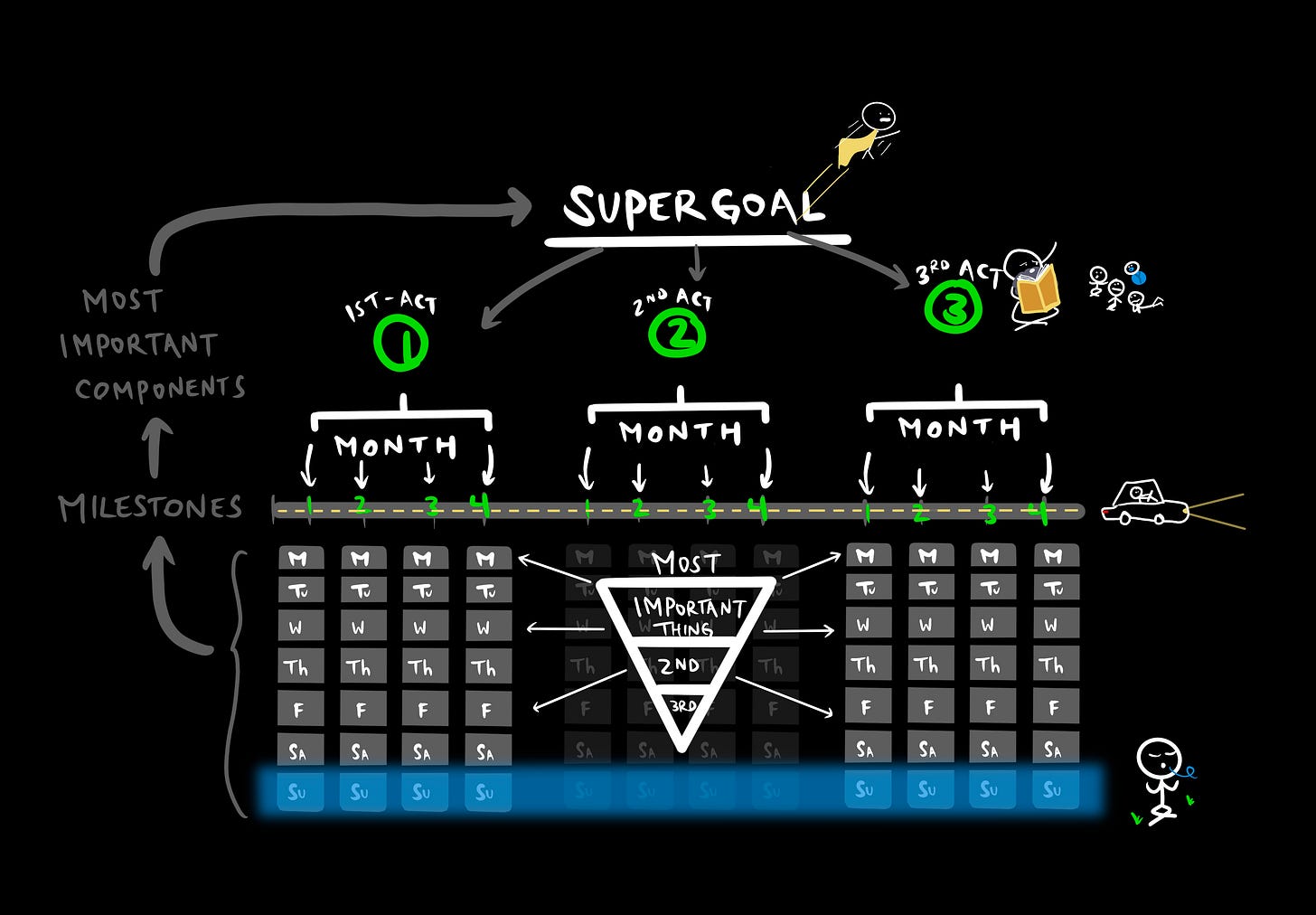

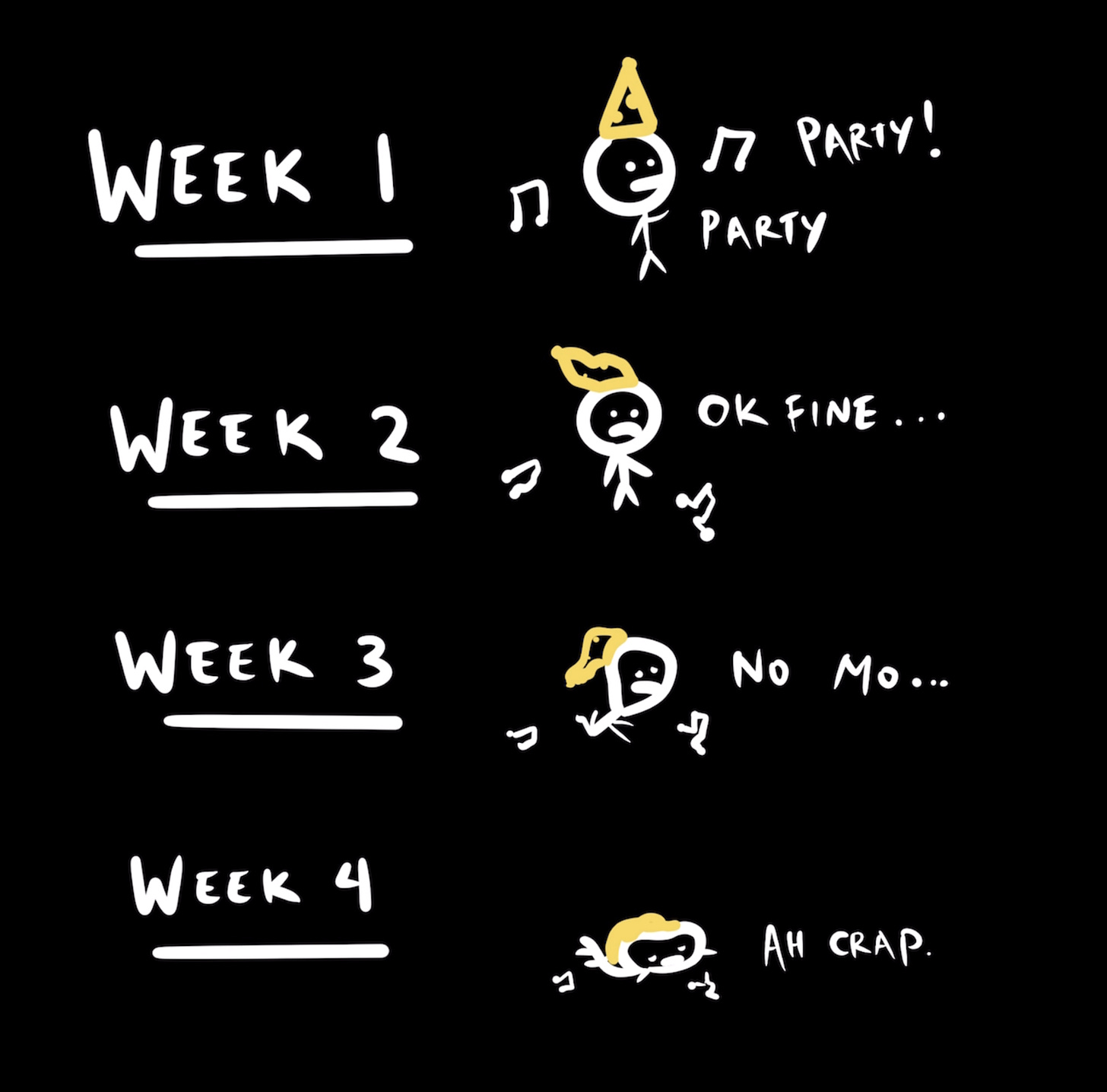
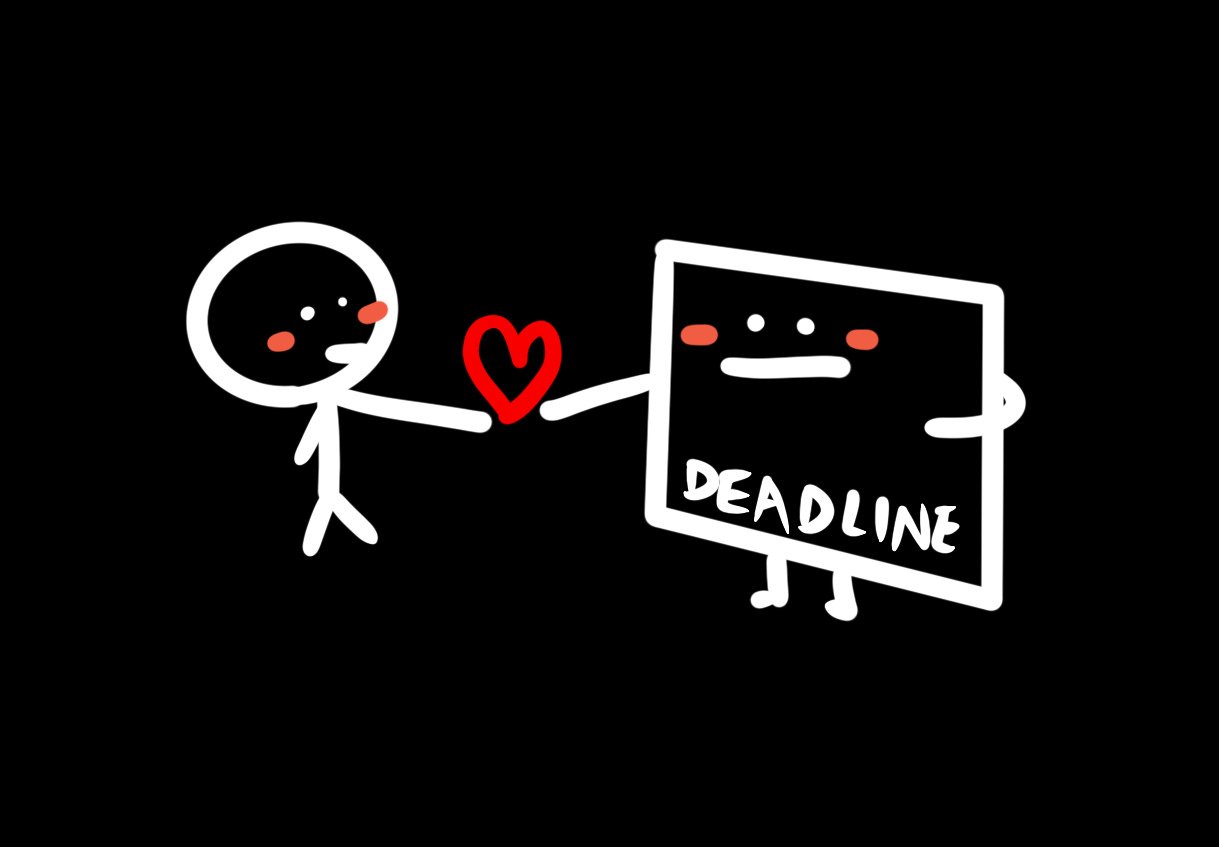

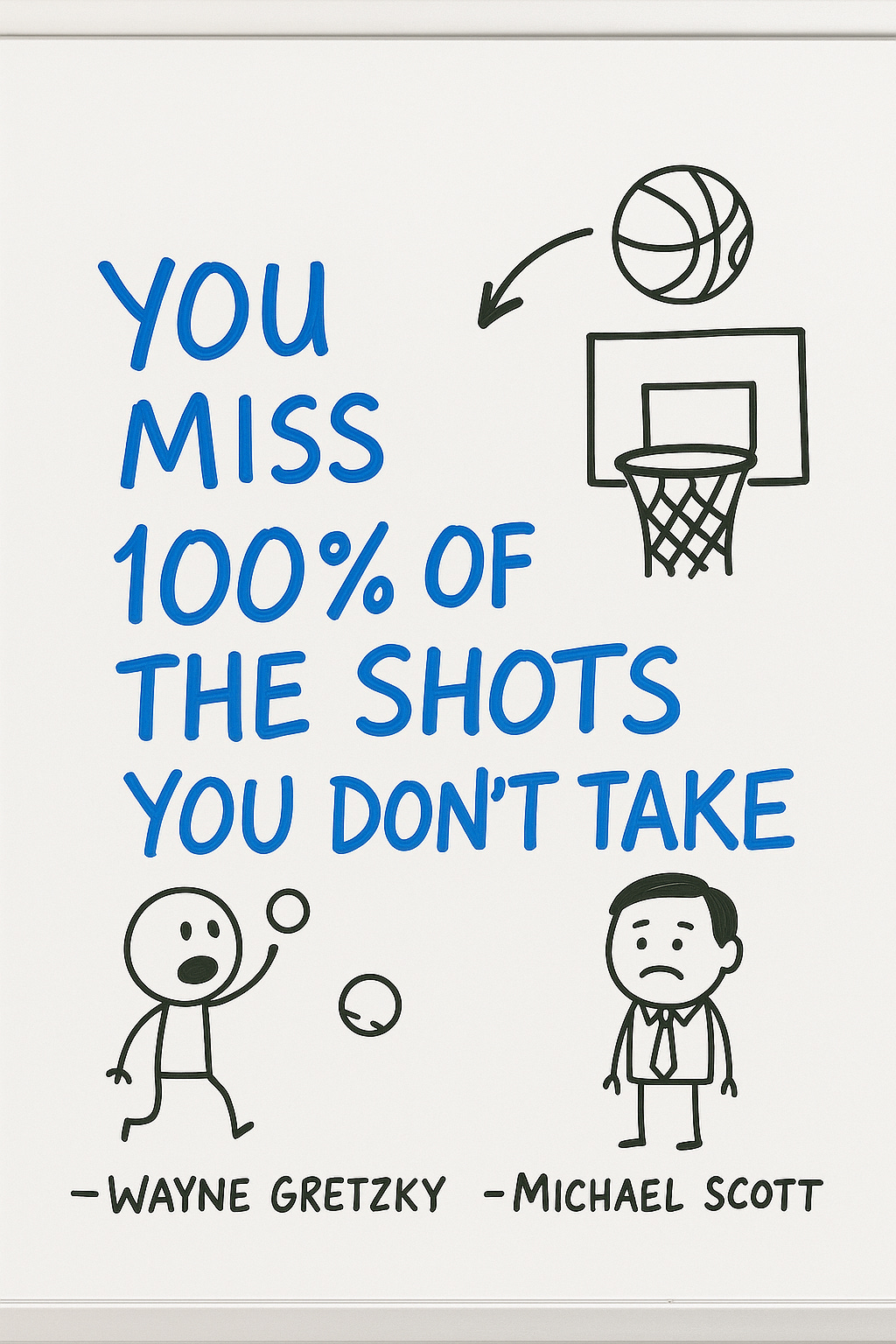
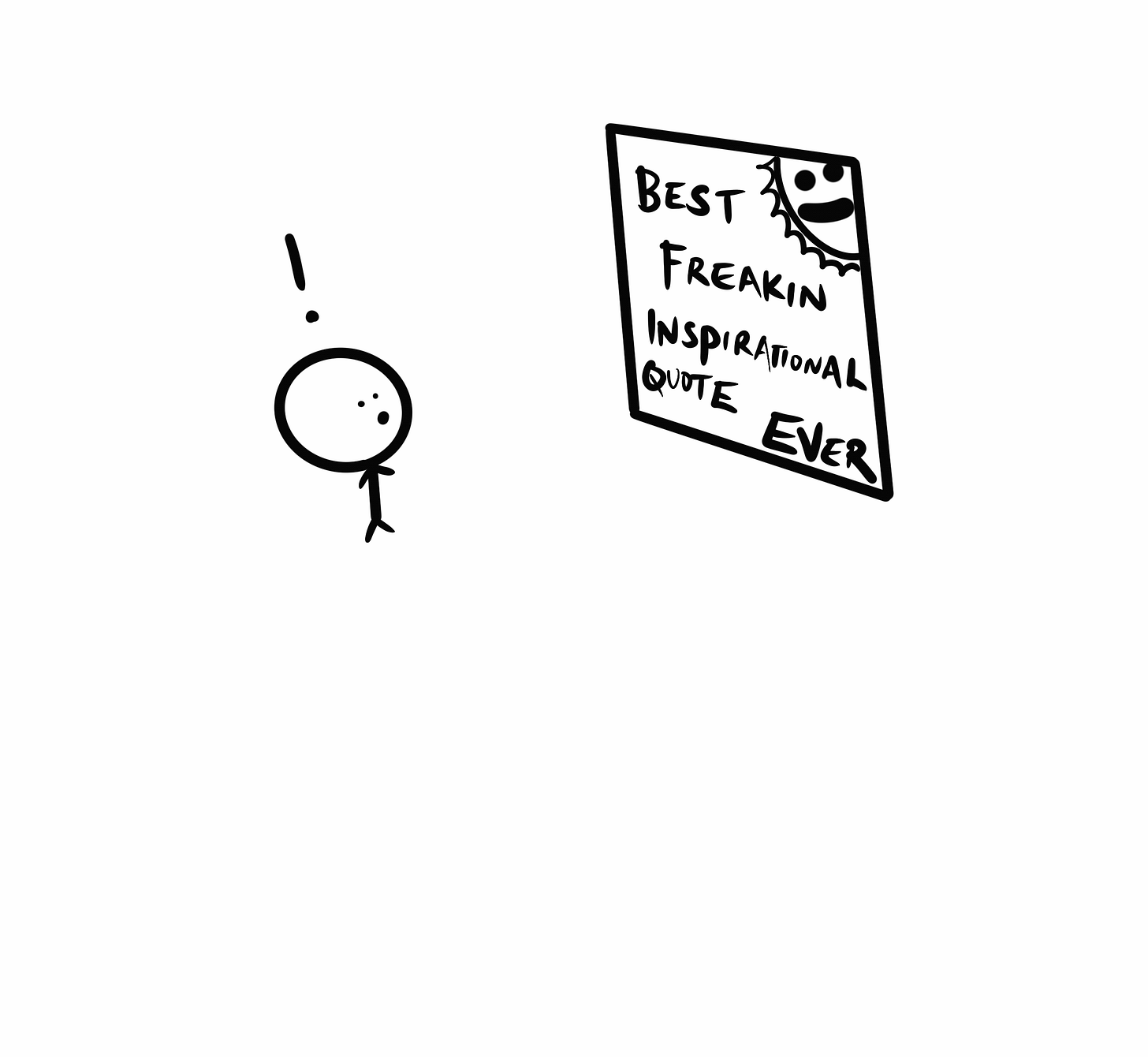
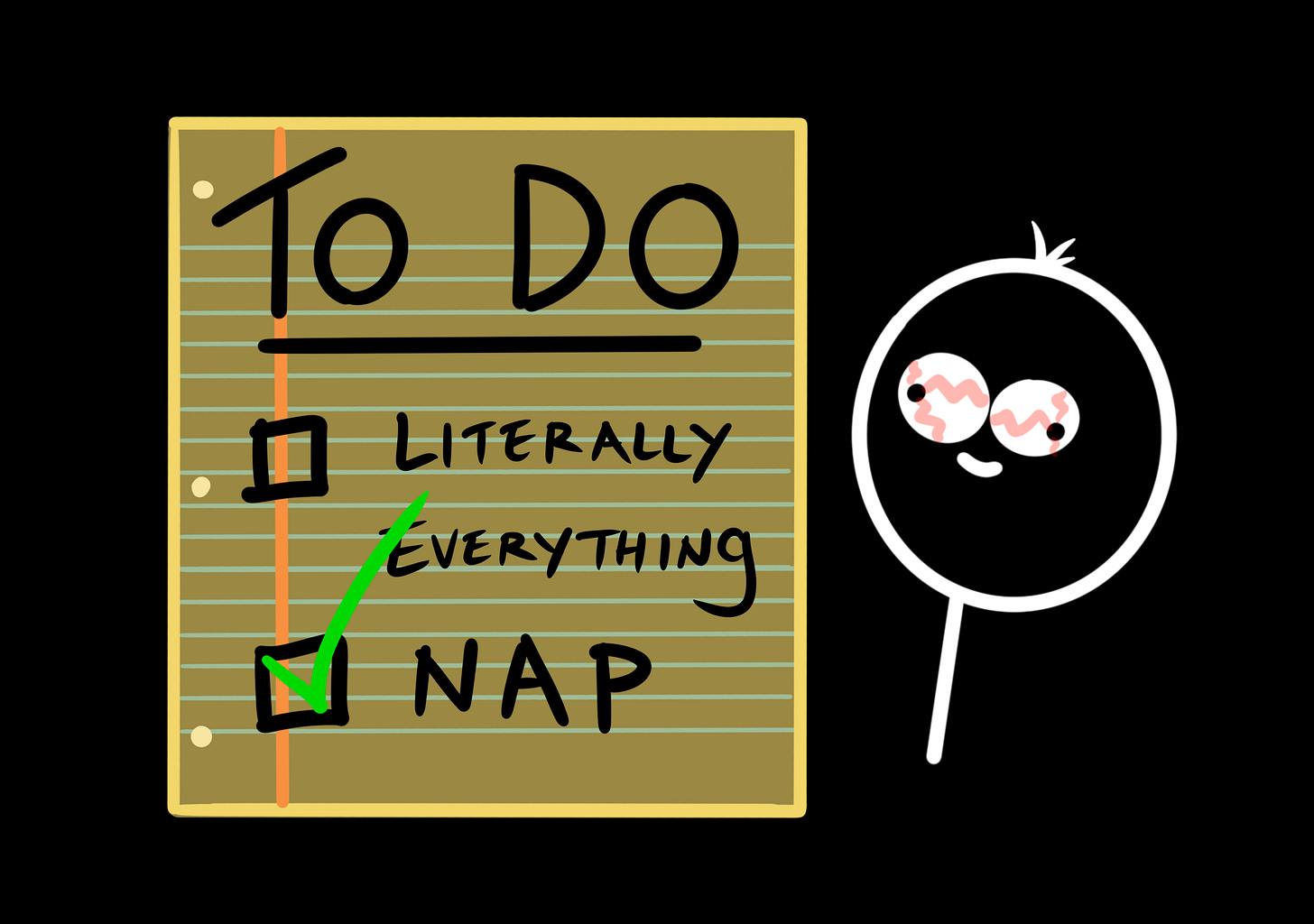
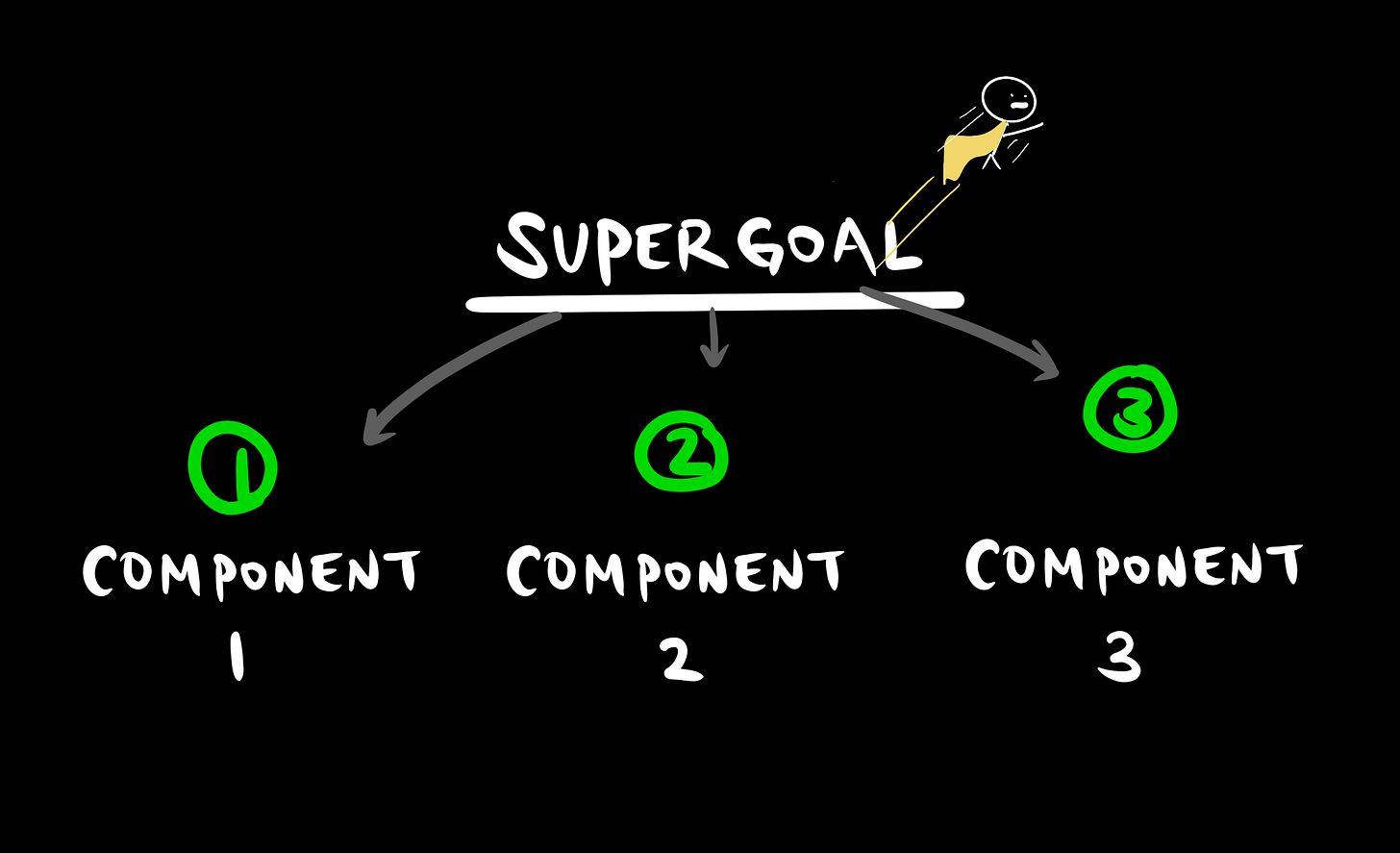

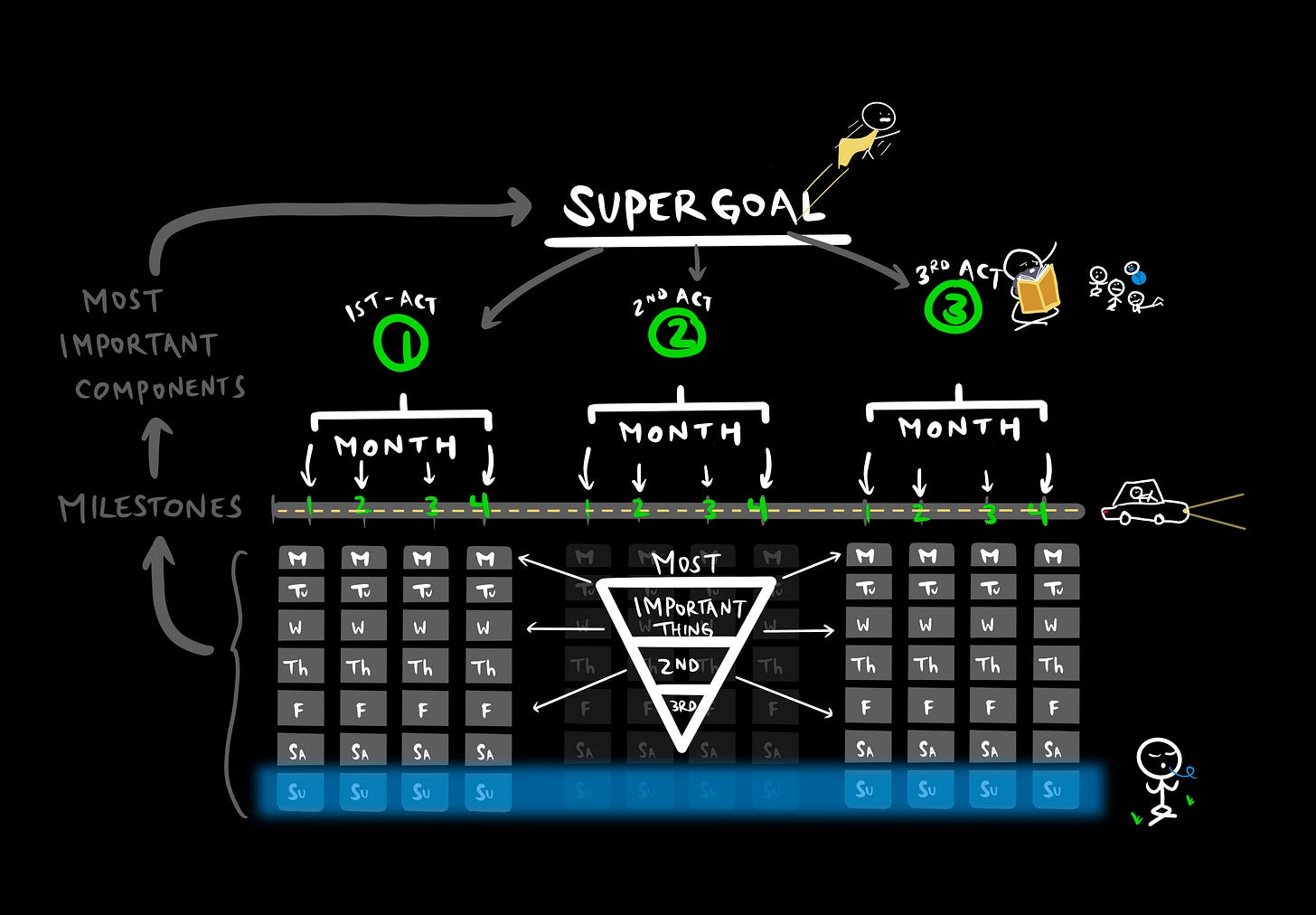
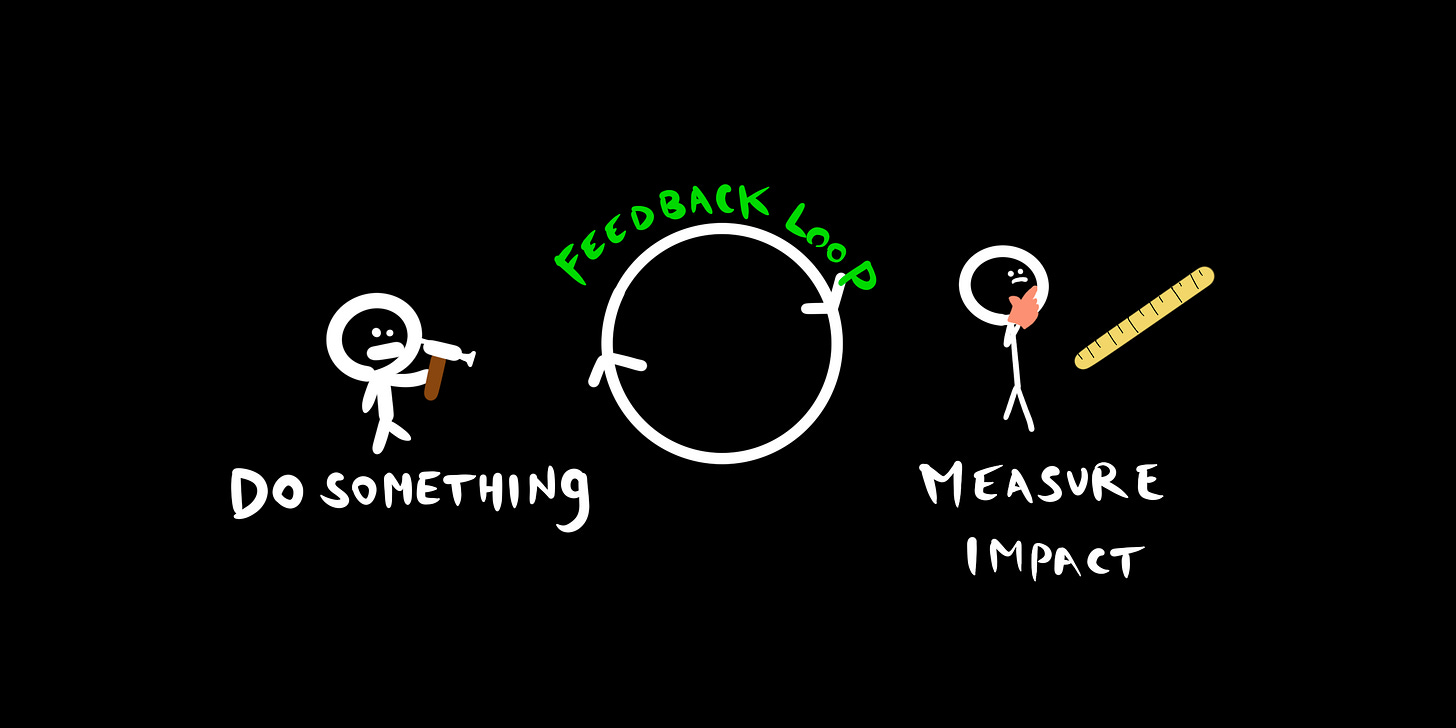
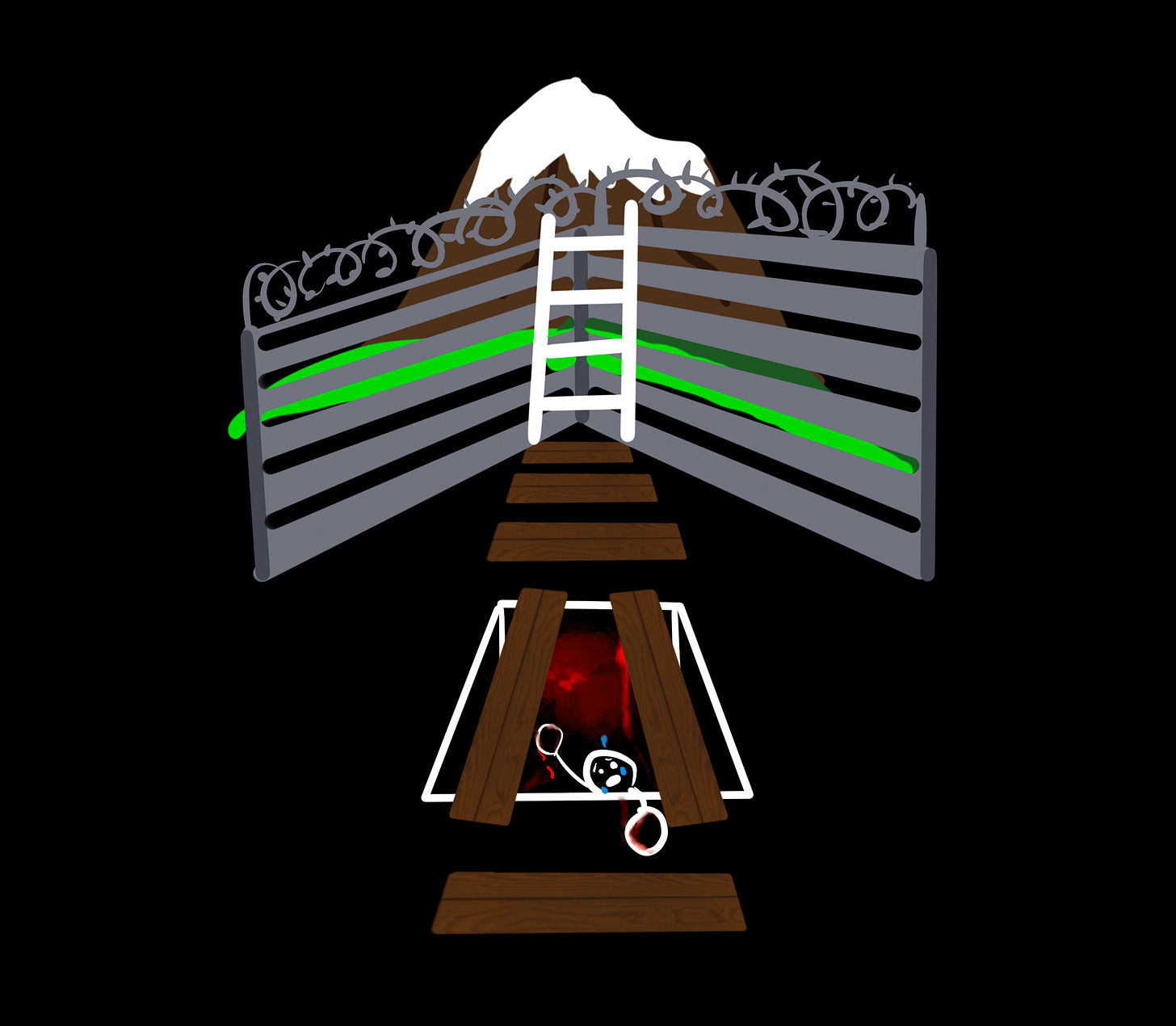
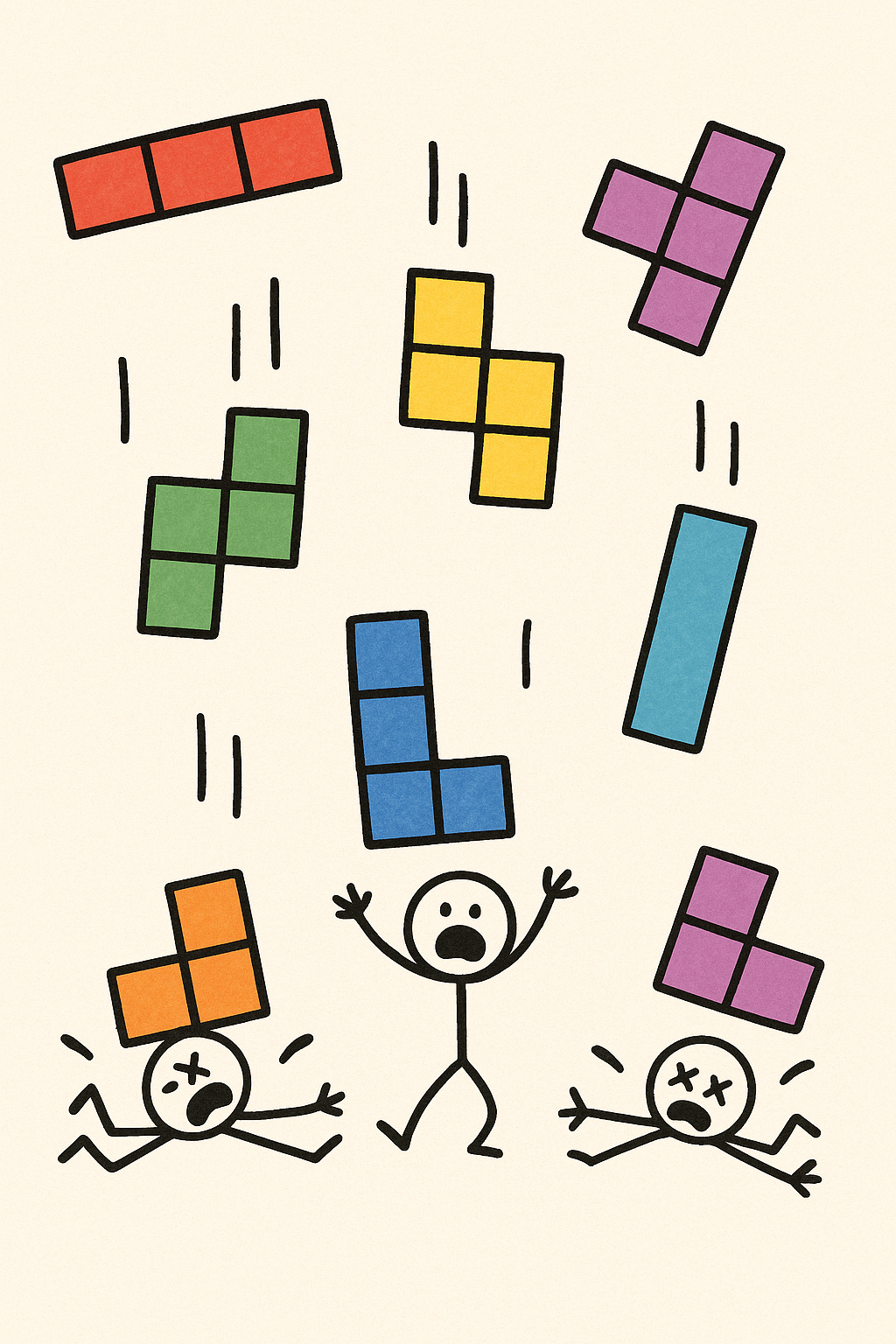



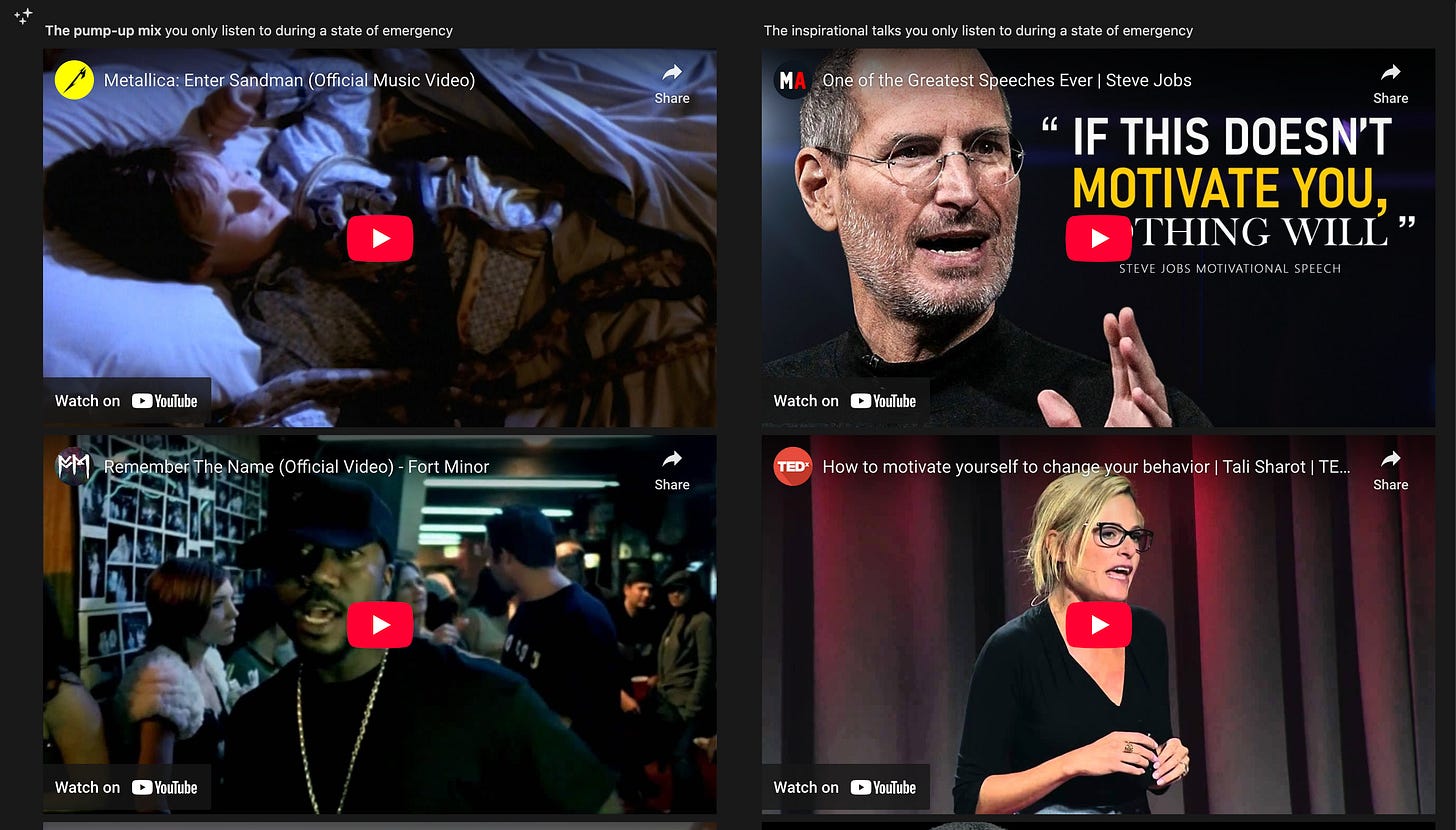
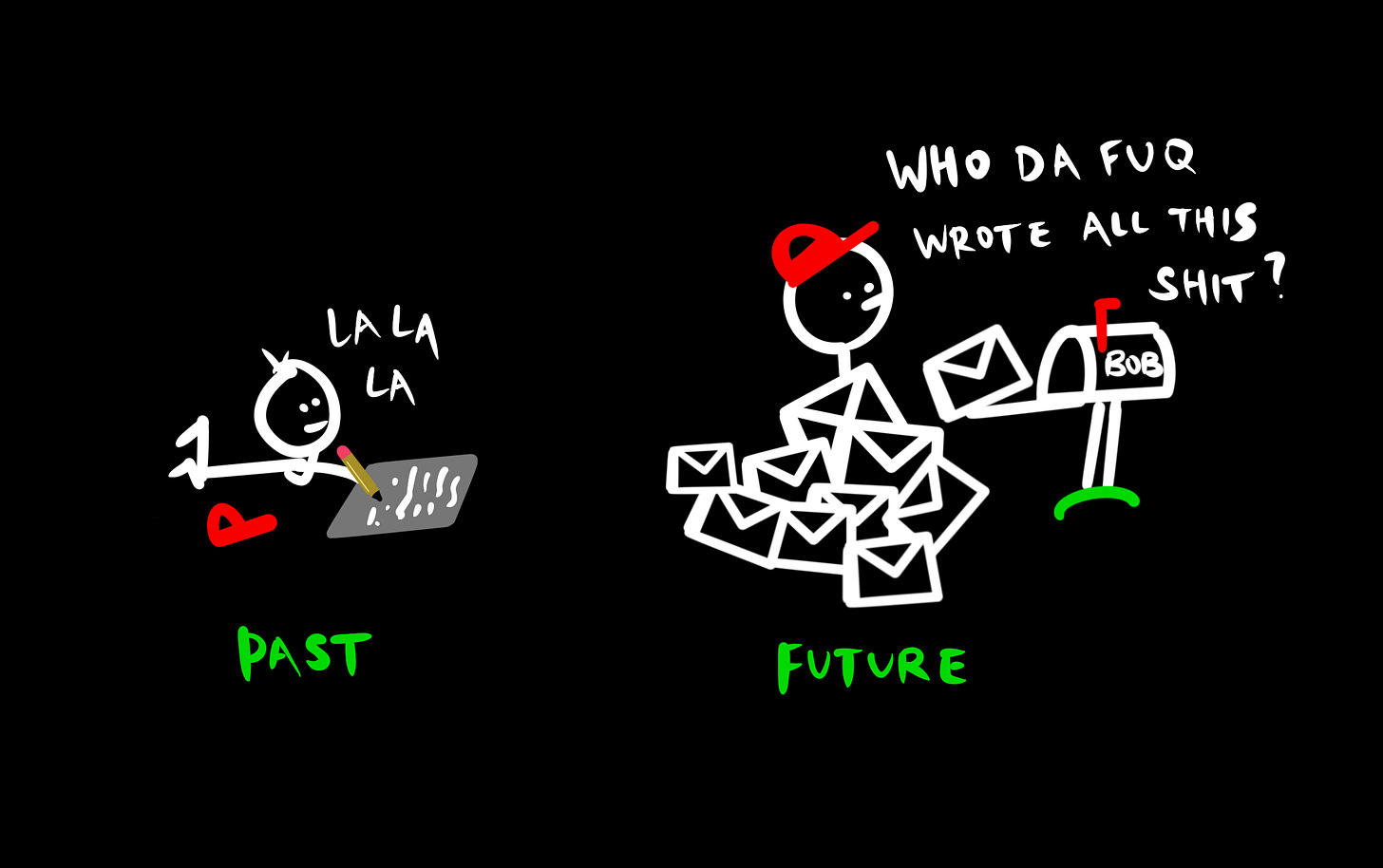
Ich bin froh, dass ich zufälligerweise dein Video auf YouTube gefunden habe (danke Algorithmen). Du machst so tolle und wertvolle Sachen! Ganz sicher lohnt es sich und du fühlst sich damit auch wohl.
Thanks for your job! You make this world better ❤️
Liebe Grüße aus Deutschland